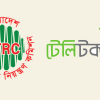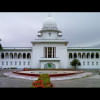2nd Submarine Cable: Users denied full benefit
Bangladesh yesterday launched its second submarine cable connection for commercial use, making another stride in ensuring uninterrupted internet connectivity and boosting online-based business.
Industry experts, however, say this cable with a capacity of up to 1,500 Gigabits per second (Gbps) bandwidth will not bring immediate benefits to end-users as the inland cable network set up by state-owned Bangladesh Telecommunications Company Ltd (BTCL) is not up to the mark.
Suman Ahmed Sabir, chief strategy officer of international internet gateway Fibre@Home, said this connection would give the industry some comfort but the consumers would not get any immediate benefit from it.
Fibre@Home, along with five other companies, imports around 260 Gbps bandwidth from India.
“First, we need to see the reliability of the connection, then we will decide whether to take bandwidth from it or not. If we decide to do so, we will have to maintain our connectivity with India as well,” said Sabir.
Imdadul Haque, general secretary of Internet Service Providers Association of Bangladesh (ISPAB), also echoed his views.
“If we get service from the second cable at competitive prices, we will not use imported bandwidth. But the service needs to be up to the mark.”
Abu Saeed Khan, senior policy fellow at Colombo based think-tank LIRNEasia, said this new connection would not be able to ensure faster data speed for consumers as each domestic unit of the BTCL is capable of carrying only 10 Gbps bandwidth.
Industry insiders say the state-run Bangladesh Submarine Cable Company Ltd (BSCCL) arbitrarily fixes the bandwidth price, which is higher than that of the bandwidth brought from India.
Imported bandwidth costs around Tk 350 per Mbps. If any company buys high volume of bandwidth, the price goes down.
On the other hand, the BSCCL charges a minimum of Tk 560 per Mbps. The price goes up if the volume of bandwidth is low, they say.
“Price is one of our concerns when it comes to using BSCCL-provided bandwidth. If the government reduces the price, we will go for local bandwidth,” said Sabir.
Consumption of imported bandwidth is much higher than that of BSCCL-provided bandwidth because of the price gap, he added.
Talking to this correspondent last week, BSCCL Managing Director Monwar Hossain said they were planning to slash the wholesale price of bandwidth by 20 percent after the commercial launch of the second cable network.
The total bandwidth use in the country has reached around 450 Gbps. Of the amount, 260 Gbps come from India and 180 Gbps are provided by BSCCL.
Through the new cable “South East Asia-Middle East-Western Europe 5 (SEA-ME-WE 5)”, 50 Gbps bandwidth is being carried to the inland network, said Parvez M Ashraf, project director of SEA-ME-WE 5.
He also said they could increase the transmission up to 200 Gbps, depending on the demand.
The lifespan of the cable is 20 years, which could be increased by another five years through optimum maintenance.
Besides this one, the country is connected with a submarine cable through Cox's Bazar and six more cables through India.
Though the task of laying the second submarine cable up to Kuakata landing station in Patuakhali was completed eight months ago for Tk 660 crore, the cable could not be connected to the inland network due to the BTCL's failure to ensure an uninterrupted inland link.
The government announced inaugurating the commercial use of the cable in mid-March. Later, it deferred the date to July 31. But the link between the landing station and the capital could not be fully readied for commercial use within the stipulated time.
Finally, Prime Minister Sheikh Hasina inaugurated the cable's commercial use from the Gono Bhaban through video conference yesterday.
Saeed Khan, also ex-secretary general of the Association of Mobile Telecom Operators of Bangladesh, said, “The losses due to the delay should be quantified and the persons responsible should be held accountable.”
This newspaper tried to reach the managing directors of both the BTCL and the BSCCL over the phone yesterday but failed.
A 19-member consortium of 16 nations had laid the undersea cable across Southeast Asia, the Middle East, Africa and Europe.
On March 6, 2014, the BSCCL signed a deal with the consortium to get connected with it.
Sabir said Bangladesh needs to be connected with at least three to four submarine cables to ensure quality internet service.
Saeed Khan suggested that the government establish a link between the two landing stations in Cox's Bazar and Kuakata for better service.
“But I have doubts whether the current management of the BTCL has the capacity to do a job like that.”
He also recommended engaging private companies in setting up submarine cable network to bring competition to the market.
The BSCCL is enjoying monopoly on this business in the country. If the government allows private investments, this would untimely create scopes for the customers to get the highest level of service, said Saeed Khan.
“India, Pakistan and even Sri Lanka have allowed private investment in cable business… Why not Bangladesh?”
The LIRNEasia fellow also suggested that the BSCCL look for prospective customers for exporting bandwidth.
The BSCCL borrowed $44 million from the Islamic Development Bank to bear the expenses of the second submarine cable. The instalments of the repayment will begin next month.

 For all latest news, follow The Daily Star's Google News channel.
For all latest news, follow The Daily Star's Google News channel. 








Comments